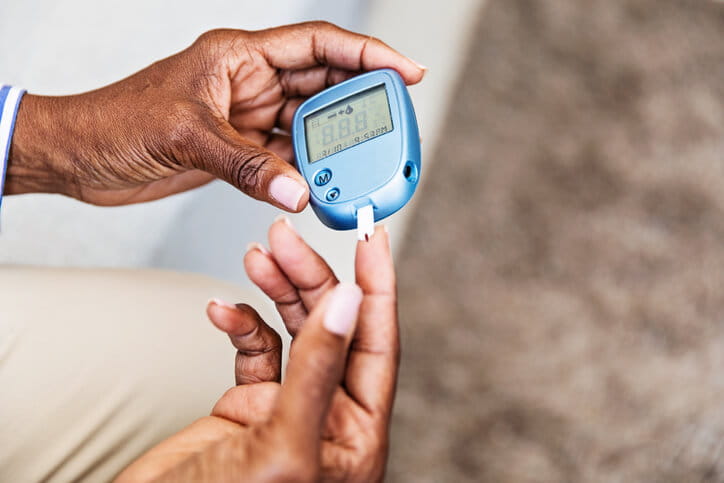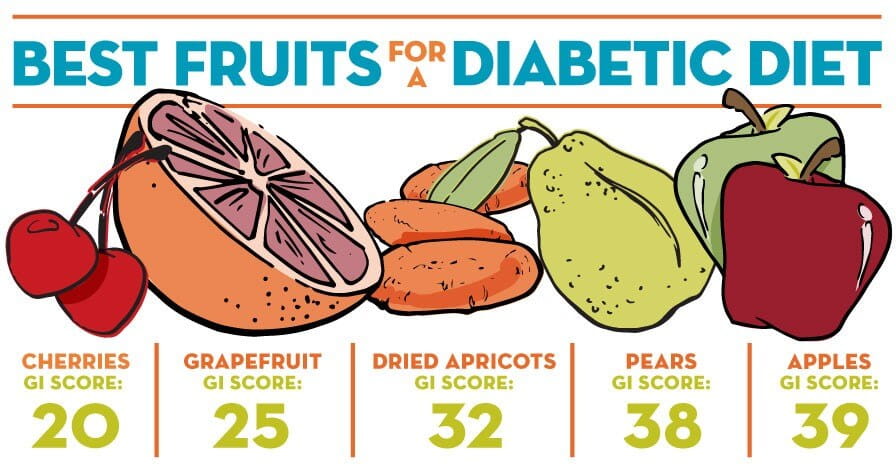Foods to Avoid With Diabetes

This content was reviewed and approved by Shana Nicholson MSN, RN, CDCES, MLDE, PCCN.
A healthy diet is essential for everyone, but it’s especially important for individuals managing diabetes. Making informed food choices can help regulate blood sugar levels, reduce the risk of complications and improve overall well-being. While focusing on what you can eat is crucial, it's equally important to know which foods to limit or avoid.
This article explains some key food categories to be mindful of if you have diabetes.
Sugary Foods and Drinks
Foods and beverages high in added sugars are among the biggest culprits for blood sugar spikes. They offer little to no nutritional value and can contribute to weight gain and other health issues.
Keep the following considerations in mind with these items:
- Avoid sugary drinks
- Limit candy and desserts
- Read labels carefully
Unhealthy Fats
While not all fats are bad, saturated and trans fats can have a negative impact on your health, particularly for individuals with diabetes. These fats can increase cholesterol levels and contribute to insulin resistance.
Here’s how to manage fat consumption:
- Limit fried foods
- Avoid processed snacks
- Choose lean protein sources
Processed and Refined Grains
Refined grains, like white bread and white rice, have been stripped of their fiber and nutrients. This means they are digested quickly, which can lead to a rapid increase in blood sugar levels. Consequently, you should:
- Choose whole grains
- Limit white bread
- Avoid sugary cereals
Certain Meats and Dairy
Some types of meat and dairy products can be high in saturated fats and sodium, which can be problematic for people with diabetes. Here’s how to address these foods:
- Avoid processed meats
- Choose lean cuts
- Limit full-fat dairy
Delicious Foods for Those Managing Diabetes
A diagnosis of diabetes doesn’t mean a lifetime of unappetizing food. The key is to focus on whole, nutrient-dense foods that are full of flavor and health benefits. By making wise choices, you can create a diet that is both satisfying and beneficial for your condition.
For example, you can enjoy many types of non-starchy vegetables, such as crisp salads, roasted asparagus and sautéed bell peppers. These vegetables are low in carbohydrates and high in fiber, which helps you feel full and satisfied. For a touch of sweetness, you can eat a variety of fruits in moderation, such as berries, which are packed with antioxidants.
When it comes to grains, check out the nutty flavor of quinoa and the pleasant chewiness of farro. Whole grains are digested more slowly, preventing sharp spikes in blood sugar.
As for protein, you have many options. For instance, grilled or baked fish, such as salmon or trout, is tasty and rich in omega-3 fatty acids. Skinless chicken and turkey are also excellent sources of lean protein.
Don't forget plant-based proteins like lentils, beans and tofu, which are not only delicious but also high in fiber. Healthy fats, found in avocados, nuts, seeds and olive oil, can add flavor to your meals while also supporting heart health.
Making a Positive Change
Managing diabetes through diet doesn't have to be about deprivation. Instead, think of it as an opportunity to embrace a healthier way of eating. By focusing on whole, unprocessed foods, you can take control of your health and feel your best.
Talk with your healthcare provider or call our Diabetes Care team at 1.844.964.0760 if you have questions or concerns about diabetes. You can use our online provider directory to find a Baptist Health provider if you don’t have one.
Next Steps and Helpful Resources
Learn More About Diabetes Care at Baptist Health
Is Diabetes Genetic?
Options for Managing Diabetes
Pregnancy & Diabetes



